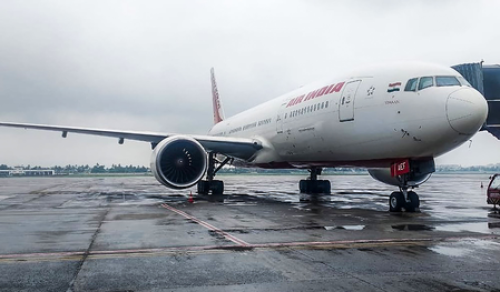By Ateet Sharma New Delhi, March 2: Media freedom in China deteriorated significantly in 2020 as the Chinese authorities employed more strategies, ramping up surveillance on journalists and sources, both physically and electronically, harassing especially those who were reporting in regions deemed sensitive by the government, including Xinjiang, Tibetan-inhabited areas such as Sichuan or Gansu, Inner Mongolia and Hong Kong. The Foreign Correspondents' Club of China (FCCC) said in its annual report that the Chinese authorities sought to restrict reporting on the coronavirus pandemic and used "all arms of state power" to harass and intimidate journalists as country's propaganda machine struggled to regain control of the narrative around this public health disaster. "China has used the pandemic as yet another way to control journalists," the 2020 FCCC report on media freedom stated adding that for the third consecutive year, not a single correspondent said working conditions improved, in response to an annual survey conducted by the club. The damaging report has been released at a time when "more eyes than ever" are trained on China and the country is getting ready to host the Beijing 2022 Winter Olympics. It detailed how China cancelled press credentials and refused to renew visas, resulting in the largest expulsion of foreign journalists since the aftermath of the Tiananmen Square massacre more than three decades ago. In the first half of 2020, China expelled at least 18 foreign journalists from the New York Times, Wall Street Journal, and the Washington Post. Correspondents affected included American and Australian journalists, some of whom were given 10 days to leave the country. "Despite what China says about wanting to be open to the world and to show everybody what a vibrant society it is, they clearly restrict reporting of anything that doesn't adhere to their vision," said Steven Lee Myers, Beijing bureau chief for the New York Times, who was expelled in March 2020. "It's suggestive of a climate that's not going to get any better," he was quoted as saying in the report. Hong Kong Protests Several protesters were arrested in Hong Kong under the new National Security Law The report said that not just the foreign journalists, Chinese nationals working for foreign media faced increasing pressure, with authorities forcing them into regular interrogations, compelling their resignations, and in the worst cases, throwing them in long-term detention. As a diplomatic standoff ensued between Australia and China with the Australian Broadcasting Corporation's Bill Birtles and the Australian Financial Review's Michael Smith taking shelter in the Australian embassy in Beijing and consulate in Shanghai, Cheng Lei, an Australian journalist for Chinese state broadcaster CGTN, was detained and formally arrested last month for allegedly supplying state secrets overseas. "Another alarming escalation occurred in December when Haze Fan, a Chinese national working for Bloomberg News, was detained, also on alleged national security grounds. As in the case of Cheng, Chinese authorities have released virtually no information regarding her situation. Both remain in detention," the report says. It wasn't just for their Covid-19 reporting that the foreign correspondents experienced harassment. The report reveals that all reporters travelling to the restive Xinjiang province - where the treatment of the Uyghur Muslim minority is being labelled as a 'genocide' by some countries now - were visibly followed by police or state security agents, asked to delete data from their devices, and prevented from talking to people. "For some correspondents, Xinjiang-related pressure continued after leaving the region. In Beijing, the Ministry of Foreign Affairs � which holds the authority to issue or refuse credentials to foreign correspondents � regularly summons foreign journalists to meetings in which officials criticize journalism that does not comport with official narratives," says the report. It also mentions that access to the Tibet Autonomous Region (TAR) remains restricted for foreign journalists, who must apply for permission from the Chinese government to visit. While the China's State Council and Ministry of Foreign Affairs on occasion arrange government-supervised trips to TAR, it carefully chooses which journalists and organisations are allowed to participate. "A small number of media organisations selected by Chinese officials participated in a second state-organised trip to TAR later in the year. However, participants said no independent reporting was possible, as the schedule was tightly managed and police followed if journalists tried to visit places on their own." Similarly, substantial new challenges emerged in Hong Kong due to a sweeping National Security Law imposed by Beijing last June. While correspondents were effectively barred from travelling to Hong Kong for most of 2020 due to Covid, they continued to be aggressively questioned and criticized by China's Foreign Ministry over their coverage of the city. Nearly half of respondents in the survey done by the club also said that they fear surveillance, digital or in person, regularly affecting their ability to adequately interview and communicate with sources or carry out their reporting. The correspondents said their internet accounts had been targeted in attempted hacks, the WeChat messages (the most common form of online communication in China) surveiled by the government and even the SMS verification methods remain a serious vulnerability as China's telecom carriers are all state-owned. The report concludes with the FCCC urging Chinese authorities to allow foreign journalists to do their jobs, saying that President Xi Jinping himself had once said that China "welcomed foreign journalist friends to explore" the country. (This content is being carried under an arrangement with indianarrative.com)
China's increasing 'red lines' slammed by foreign media in annual report
- by Rinku
- March 02, 2021 2 minutes

China's increasing 'red lines' slammed by foreign media in annual report.(photo: India Narrative)












